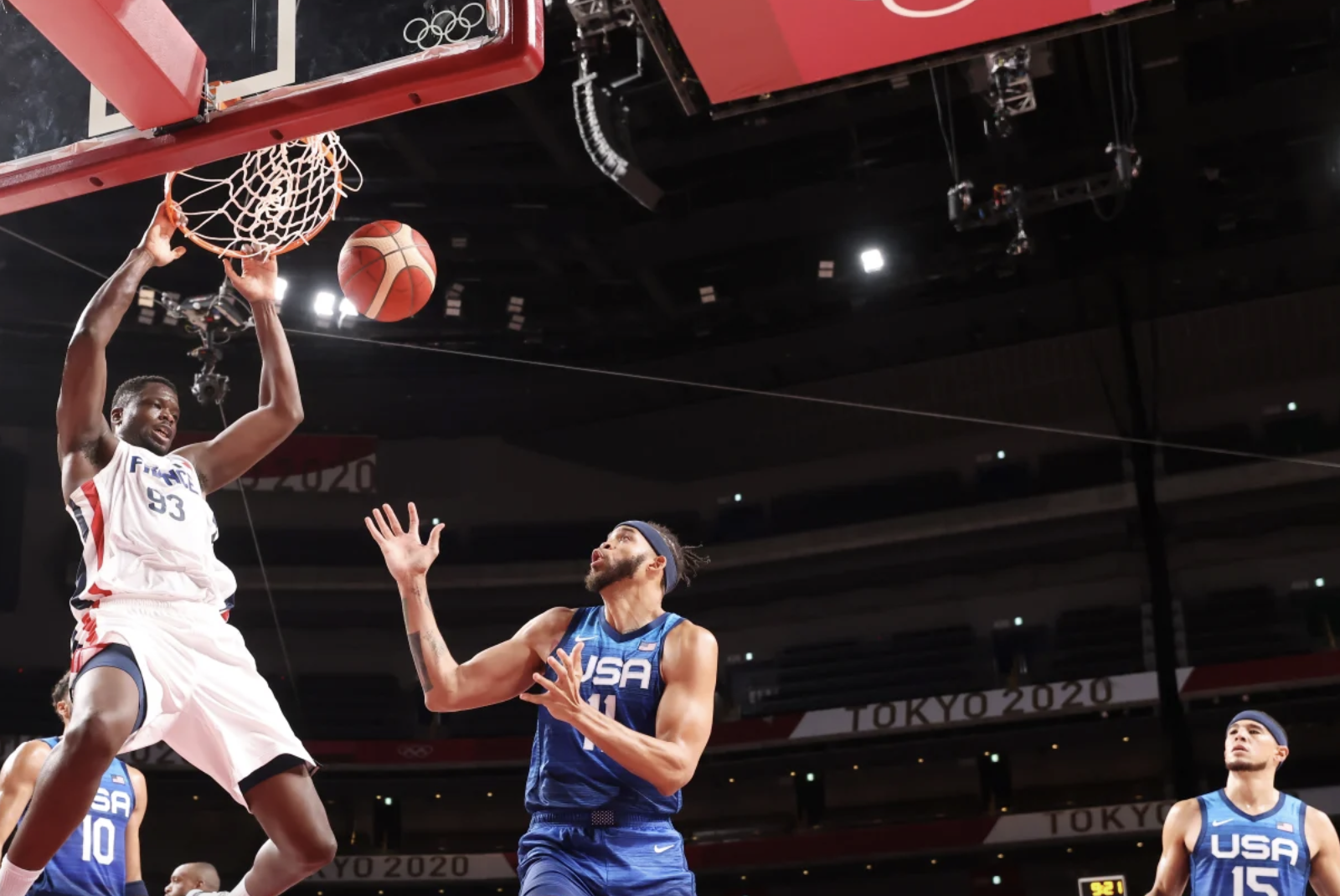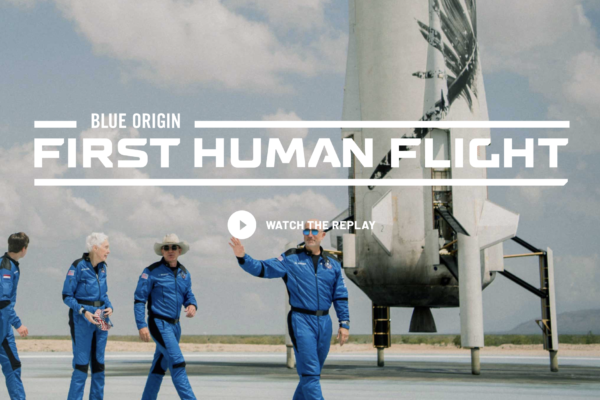The Week Kick-off: Olympic Ceremony TV ratings fail to blast off
Another worldwide broadcast-streaming event took to our screens last week, as Jeff Bezos’ Blue Origin rocket blasted into space. Meanwhile, a subdued Olympic Opening Ceremony struggled to attract eyeballs, while eyebrows began to be raised about the current state of global weather reporting. There’s also good news for Future Plc as we blast off into another new week in the world of media!
Eyeballs turned skyward…
We reported recently on the latest Virgin Galactic flight and the birth of commercial space travel. Not to be outdone by Sir Richard Branson and Elon Musk, Amazon’s Jeff Bezos took to the skies last week, taking lifelong Astronaut and now the oldest person to ever go into space, Wally Funk, along for the ride.
These events mark the arrival of a new age in global technology, but provide an important benchmark in the world of media too, where traditional broadcasters and the private companies themselves come together to beam these events out live across the planet. The space flight was a huge success, and with rocket booster technology on display that can safely return itself to earth following lift-off, we do truly appear to be entering a new phase in human exploration!
… and away from Tokyo
But if the Buzz was in space last week (second person to ever walk on the moon), then in Tokyo it was most certainly not, as the Olympic Opening Ceremony reportedly received its lowest US TV audience for 33 years. Preliminary figures released by Nielsen and reported by Reuters show that the NBC broadcast of the event received 16.7 million viewers, down 37% from the 2016 games and the lowest since the Seoul Olympics of 1988, which received 22.7 million. Good excuse here as well to link to possibly the second most famous 100m final of all time.
Of course, as Reuters and other publications have pointed out, comparisons with previous events are not apples to apples, because of streaming. On the one hand, this practice provides more ways to access the same content and should in theory make it more accessible to a wider audience – so viewing figures on NBCOlympics.com and the NBC Sports app for example looked healthy. But of course equally streaming is always going to fragment an audience, when you consider that it just gives viewers infinitely more options in content consumption, from different online channels, to watching at different times, in shortened formats, etc.

Important also to remember that the event was broadcast live at 7am Eastern, and then again 7:30pm primetime, so nothing crazy crazy going on in other words, in terms of time difference.
Nonetheless, for an event that welcomed zero spectators into the stadium, has met with Covid-19 safety concerns along the way, and was deliberately kept respectfully lowkey due to the current macro-situation in which we all find ourselves, 16.7 million is surely a figure that could have been a lot worse.
Eyebrows raised around weather reporting
One thing that is unfortunately getting a lot worse is climate change, and there has been a marked transition in recent weeks as regards how the written press and broadcast media seem to be reporting on the weather at large.
In the UK, a recent heatwave and accompanying thunderstorms have highlighted the dichotomy of a country traditionally used to celebrating sweltering summer temperatures by way of images of packed out parks and beaches, now faced with its first extreme heat warning in history. In Germany, the climate change crisis forced its way to the top of the news cycle, as Chancellor Angela Merkel was filmed visiting Schuld, a badly-hit village in the area of Germany and Belgium where hundreds of people have lost their lives through heavy flooding. Across Asia and North America, we have witnessed significant scenes as well.
It’s a scary time in the development of the climate change crisis, the extent of which is highlighted by the media’s shifting reporting of it. This year happy images of revellers enjoying an ice-cream at the beach have been juxtaposed with accounts of the stark reality of the situation. Looking on from the UK at least, it has at times felt like the traditional media is almost displaying an uneasy compromise about how best to report on something that was up until recently, simply the ‘day-to-day’. In the Irish Times, Dr David Robbins – a former Journalist and Director of the DCU Centre for Climate & Society – goes a step further, asking ‘Why don’t media reports of extreme or unusual weather mention the role of climate change?’
A brighter Future
In happier news and closer to home, Digiday reports that ‘Future Plc drove nearly $1 billion in e-commerce sales in 2020’. In the first half of 2021, e-commerce affiliate revenue was roughly US $116.5 million. That figure represents more than 30% of Future’s total revenue. The company sold $960 million in sales order value for affiliate partners in 2020, and the total number of transactions it drove grew 109% in the US from April 2020 to April 2021.
E-commerce is obviously a revenue stream that many media owners are now taking more seriously, and this trend has been accelerated by the onset of the Covid-19 pandemic. We recently reported on how Tipser has enabled Swedish newspaper, Svenska Dagbladet, to take tangible steps into e-commerce and you can read that article in full here.
As for FIPP…
We have launched a new Training module on that very topic, which you can find out more about here. Beginning in September, FIPP – with the support of Tipser – the inaugural online training course is designed to help publishers, large and small, to benefit from e-commerce.










